AN ANTONIO, Texas, July 13, 2006 – Standard Aero San Antonio, Inc. and Lockheed Martin’s Kelly Aviation Center, L.P. (KAC) have reached an agreement to retain Standard Aero as KAC’s T56 depot maintenance provider for the full term of the Propulsion Business Area (PBA) contract with the U.S. Air Force. The subcontract, due to expire in February 2007, has been extended until February 2010. Based upon government option award to KAC, the contract will be extended for additional years, up to 2014, as the prime contract is extended. Standard Aero employees will continue to overhaul T56 engines in San Antonio, Texas and Winnipeg, Canada. The T56 engine is used on the C-130 Hercules, P-3 Orion, and C-2 Greyhound aircraft.
In connection with the agreement, Standard Aero will become a Rolls-Royce Authorized Military Overhaul Facility, with Rolls-Royce technical support on T56 engine maintenance. With this business arrangement, KAC will integrate the maintenance, repair and overhaul (MRO) experience of Standard Aero with the technical expertise of Rolls-Royce, the original equipment manufacturer (OEM) for the T56. This agreement reduces any transition risk and potential production disruption of a consolidation of the T56 engine workload.
“Standard Aero employees will continue to perform high quality work from both San Antonio and Winnipeg, Canada,” said Paul Soubry Jr., President of Standard Aero. As we have since 1998, we remain committed to support Kelly Aviation Center to deliver best value to the United States Air Force. With our new and expanded relationship with Rolls-Royce and Kelly Aviation Center we will be positioned to continue our proven workmanship and delivery of world-class performance.”
Marillyn Hewson, President of Kelly Aviation Center, agrees. “This agreement will help us continue providing our customer with a low risk solution and superior engine reliability in support of our customer’s mission. Our performance, efficiency, and responsiveness will help slow the cost growth from a declining workload and help reduce overall ownership costs. Helping our customers achieve their mission requirements is our number one priority.”
Work on the T56 is managed under the PBA contract, awarded in 1999 to the U.S. Air Force’s Oklahoma City Air Logistics Center (OC-ALC). Under a subcontract with OC-ALC, the Kelly Aviation Center has responsibility for overhaul and maintenance for the T56 engines that power the C-130, C-2, and P-3 aircraft for the U.S. Air Force, U.S. Navy and U.S. Coast Guard. More time between overhauls and enhanced fleet readiness coupled with fewer aircraft in military inventories, and fewer flying hours have led to unprecedented spare engine inventory levels. Standard Aero holds prime contracts with other major T56 operators including the U.S. Navy, Canadian Forces, NATO Maintenance and Supply Agency, and multiple other fleets around the world.
Standard Aero, a leading aerospace company, is one of the world’s largest independent providers of gas turbine Maintenance, Repair, and Overhaul (MRO). Standard Aero services General Electric, Rolls-Royce, Honeywell, and Pratt & Whitney Canada engines used by regional airline, business aviation, helicopter, and military operators. The company has over 45 years of experience servicing the T56 and has received multiple awards for its performance, including the prestigious Ryan Award for delivering “best-value readiness” on the T56 engine and #1 ranking in Pro-Pilot magazine for overall MRO. In business since 1911, Standard Aero has over 2,500 employees worldwide, including more than 700 in San Antonio, and achieved $761M in 2005 sales.
Information in this release may involve guidance, expectations, beliefs, plans, intentions or strategies regarding the future. These forward-looking statements involve risks and uncertainties. All forwardlooking statements included in this release are based upon information available to Standard Aero as of the date of the release, and Standard Aero assumes no obligation to update any such forwardlooking statements. The statements in this release are not guarantees of future performance and actual results could differ materially from current expectations. Numerous factors, including the factors described in the “Risk Factors” section of the Company’s Annual Report on Form 10-K, could cause or contribute to such differences, many of which are beyond Standard Aero’s control.

